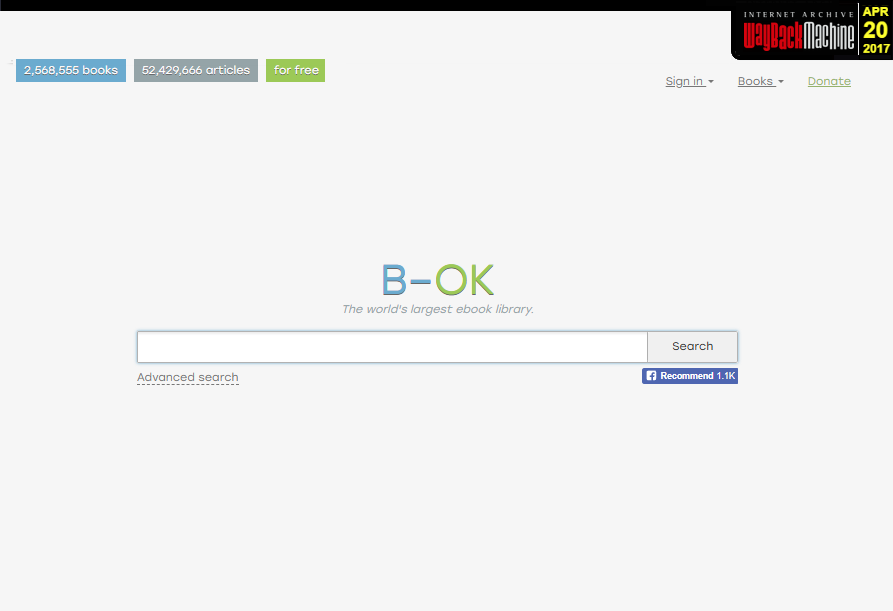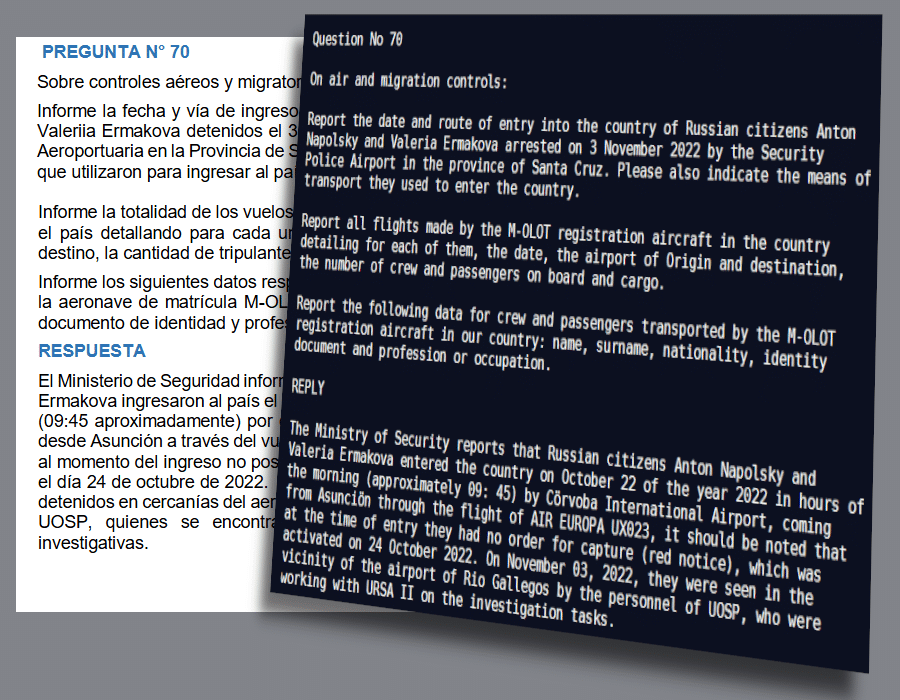 In April 2011, a modest Russian‑language news portal, ‘bal‑con.ru’, ran an interview with two young entrepreneurs. The men were quietly working to solve a problem, identified by both as a barrier to book consumption in Russia.
In April 2011, a modest Russian‑language news portal, ‘bal‑con.ru’, ran an interview with two young entrepreneurs. The men were quietly working to solve a problem, identified by both as a barrier to book consumption in Russia.
“We found it strange that existing book websites on the Russian internet had plateaued at the level of the mid-20th century. They were incredibly inconvenient to use, requiring users to wade through vast lists of categories and authors,” the men complained.
“And yet, it was so tempting to just type the book you wanted into a search engine and download it immediately.”
The Pieces Move Into Position
In early January 2010, ideas of how to fix these problems began to take shape. Suitable technology to conveniently search for books, especially in large expanding libraries, had yet to arrive. Then in the mid-2000s, convenient e-readers began to gain traction.
“Our country loves to read, and so the demand for such devices was quite substantial,” the entrepreneurs recalled.
In parallel, another important development was underway: mass digitization of all types of books and, crucially, improving availability online.
“Our old book websites weren’t ready for this. The information on the pages was so cluttered that finding the book you were looking for became quite problematic. Moreover, people were gradually becoming accustomed to the minimalist and user-friendly interfaces of popular search engines.
“So why not create a similar search engine, but for books? After all, users value their time above all else; they value results, not sifting through tables of contents and author lists.”
I Came, I Typed, I Downloaded
The solutions to these problems, and others that would in time prove highly controversial, were built by the men and presented in a site known locally as Букфи. It had a simple but compelling USP.
“We will save the user from an unnecessary waste of time, giving him only what he wants – a link to the book,” the men recalled.
Who came up with the slogan “Пришел, набрал, скачал” (loosely – I Came, I Typed, I Downloaded) still isn’t clear but for those in search of books, Букфи did its best to provide the answers.

In the West, the answers were supplied in English on BookFinder (Bukfi), a site operating from a URL that will likely feel familiar to millions of modern-day book pirates even today. With Bookfi.org, the men would soon have an international hit on their hands.
Living The Dream
“Bookfi.org is a free electronic library. We believe that books are the property of society, their access should not be limited,” the interviewer at bal‑con.ru was informed.
“We want to create the largest library, both artistic and scientific, reference, and technical literature. To begin with, our library must be the largest in the Runet. Subsequently, we plan to expand and become the largest library on the Internet.”
After the men embarked on their quest, tracking developments became less straightforward.
Representing one half of the entrepreneurial duo, the fate of Vladislav Chikhira isn’t clear. But for his partner in crime – quite literally according to rapidly changing attitudes to piracy in the West – the impossible dream certainly wasn’t impossible, nor was it a typical dream. At times, in fact, it looked more like a nightmare.

As Bookfi developed and morphed this way and that, site variants including B-OK.org also made their mark on the growing and increasingly global ‘shadow library’ scene.
The impact of the variant known as Z-Library was huge; it would see the other half of the Bukfi duo, St. Petersburg resident Anton Napolsky, transformed from an eBook search problem-solver a decade or so earlier, into the prime target of an international manhunt led by the FBI.
Z-Library: The End of the Beginning
The law enforcement operation against Z-Library, carried out by the Postal Inspection Service, in collaboration with the U.S. Department of Justice, is well documented, at least up to a point. Around November 4, 2022, a wave of suspensions targeted Z-Library’s domains, including the prominent z-lib.org, b-ok.org, and 3lib.net.
Within days the scale of the operation became more clear. Over 130 domains with links to Z-Library had been disabled; in time, the running total would exceed 350.

Meanwhile, news began to emerge of a lawsuit in the United States, which accused two Russian nationals – Anton Napolsky and his partner Valeriia Ermakova – of criminal copyright infringement, wire fraud, and money laundering.
As previously reported, the alleged operators of Z-Library had already been arrested in Argentina, from where authorities in the United States planned to extradite them, ostensibly to stand trial in the criminal prosecution of Z-Library.
From Little Acorns Mighty Disputes Grow
Even during the interview on April 4, 2011, signs of Bukfi’s upward trajectory were difficult to ignore. In the previous month alone, almost 19,000 additional titles were uploaded to the site. Official site stats reported 880,419 books, written by 124,539 authors, all available for free download.
While still a large collection, it was no match for the 12 million titles eventually boasted by Z-Library, the site born from Bukfi’s DNA. There’s no doubt the scale aggravated increasingly frustrated rightsholders, and fuelled the criminal prosecution in 2022, but perhaps surprisingly, relationships hadn’t always been so frosty.
In 2011, Chikhira and Napolsky revealed that their site was hosted in Amsterdam, with a nod towards the favorable legal environment of the day. Yet, copyright disputes were nearly always settled in favor of copyright holders, in part due to communication that aimed to solve their differences.
“With several publishers and rights owners, we have established friendly relations, which allows us to put popular books on the site to share. We always try to negotiate with the copyright holders and come to a compromise – most often it succeeds,” they said.
It would be naïve to conclude that friendly negotiations were ever on the table in 2022. Or that in 2011 the men were oblivious to the risks of dominating the publishing space with one of the world’s largest repositories of pirated books.
Law, Politics, and Mystery
In reality, Napolsky and partner Ermakova could’ve eliminated most of the risks by remaining inside Russia. After visiting around 100 countries without any major issues, their luck eventually ran out in Argentina. At least for a while.
In their battle to avoid extradition, the pair experienced some positives and some negatives. As reported here in more detail, a judge’s decision to extradite was obviously one of the negatives. The decision to place the Russian nationals under house arrest, ultimately served to balance things out.
During a visit to monitor compliance with the terms of their house arrest, the group Patronato del Liberado found nobody at home. No public announcements have indicated the whereabouts of Napolsky and Ermakova since their disappearance in May 2024.
Meanwhile, Z-Library has continued to operate without major incident since their initial arrest and right up to the present day.
High-Level Intrigue
Aside from the peculiarities of the failed extradition procedure, another unusual matter has repeatedly raised its head. Official Argentinian reports, in the context of Russian citizens present or with links to the country, also mention the alleged operators of Z-Library by name.
Two weeks before the pair were arrested on November 3, 2022, there was excitement on X concerning an allegedly suspicious aircraft that had reportedly passed through Argentinian airspace a few weeks earlier. It’s a two-minute, highly controversial read, and important for context.
An unusual itinerary and supposed links to Russia triggered questions for the government, with answers provided by Argentinian officials. The details are documented in at least two official reports (1,2,large pdfs).

A report published in Uruguay indicated that the same plane – a Bombardier Canadair CL-600 (M-OLOT) – flew from Leeds in the UK and via Argentina, eventually landed at an airport in Carrasco, Uruguay.
What became of these investigations is unknown and the conclusions, in the event any were drawn, seem unlikely to be reported quite as publicly as they initially were.
The contrast between the interview in 2011 and the events of 2022 could hardly be more striking. From attempting to make books more discoverable to being prosecuted by the United States government a decade later couldn’t have been part of the plan, or indeed, accounted for in the planning.
Consider the events in Argentina as part of the overall mix and the story becomes surreal; in the context of eBooks, barely believable.
From: TF, for the latest news on copyright battles, piracy and more.
Powered by WPeMatico
